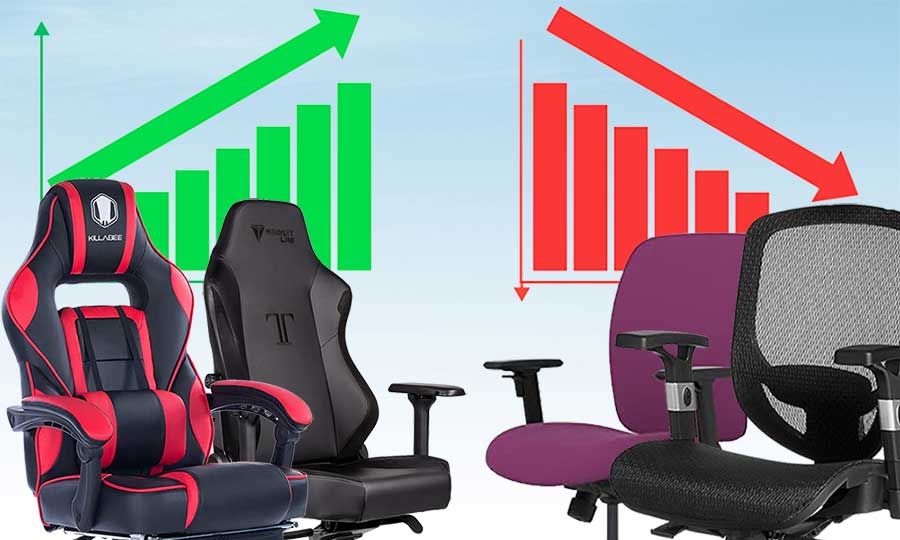The science of healthy sitting landed from outer space in 1973. Then came the internet, the dotcom bubble, other economic crashes, and the rise of pro esports. These events led a Chinese company called DXRacer to release the first ever gaming chair in 2006. That spawned an industry that now generates hundreds of millions in sales each year. Find here the complete history of gaming chairs from 1973 to 2023.
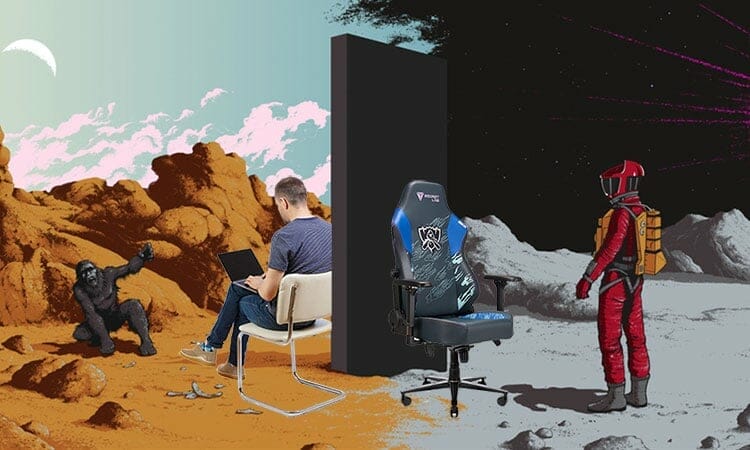
DXRacer released the Formula Series gaming chair in 2006. But the racing-style gaming chair origin story started in 1973. That was when NASA first discovered the biomechanical science of healthy sitting.
Yet, it was the rise of the internet — and three economic crises — that made DXRacer’s prototype a reality.
- South Korean Economic Collapse (1997): unemployed youth convened in internet cafes to play Starcraft.
- Dotcom Bubble (2000-2002): in 2001, DXRacer set up a business in America selling exotic car seats to dotcom millionaires. When the bubble burst, demand for their car seats evaporated.
- U.S. Auto Industry Crash (2005): the Iraq War raised oil prices, crippling a U.S. auto industry focused on luxury gas-guzzlers. That forced DXRacer to seek alternative ways to sell its car seats.
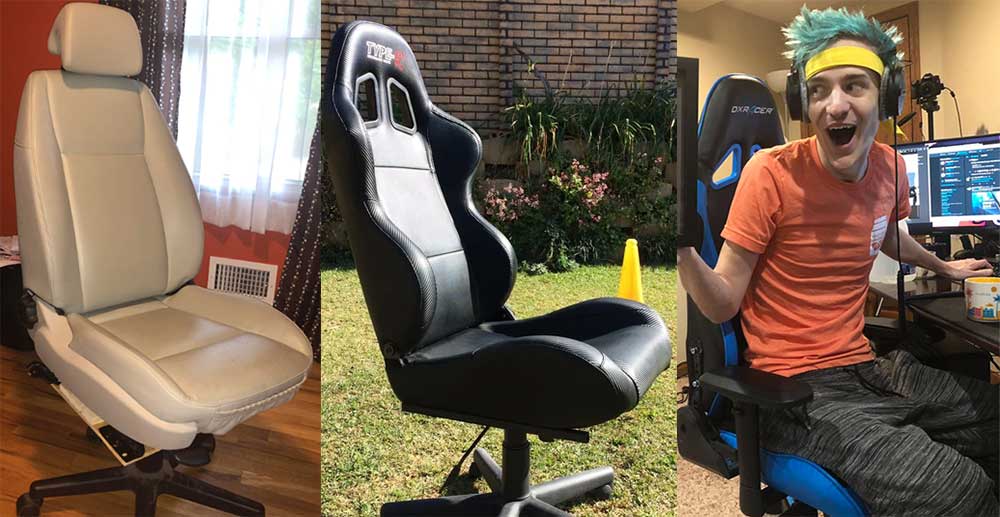
Condensed history: in 1997, a global recession hit South Korea. Jobless teens flocked to internet cafes to play Starcraft. By 2002, South Korean gameplay got so hot that corporations like Samsung started sponsoring televised tournaments — using cheap, non-ergonomic office chairs. In 2006, emerging ergonomic science gave DXRacer a blueprint to convert exotic car seats into gaming chairs. DXRacer arrived in the U.S. as the official chair of Twitchcon 2014. Soon after, elite streamers like Ninja, Tfue, and Pokimane all started using DXRacer chairs. The rest is history.
Youtube Version: The Complete History of Gaming Chairs (14:18)
COVID Lockdowns Bring Gaming Chairs Into The Mainstream
2020 was the year that gaming chairs broke through to garner mainstream attention. Then, COVID lockdowns closed offices worldwide. At that time, the office furniture industry was almost wholly focused on B2B sales.
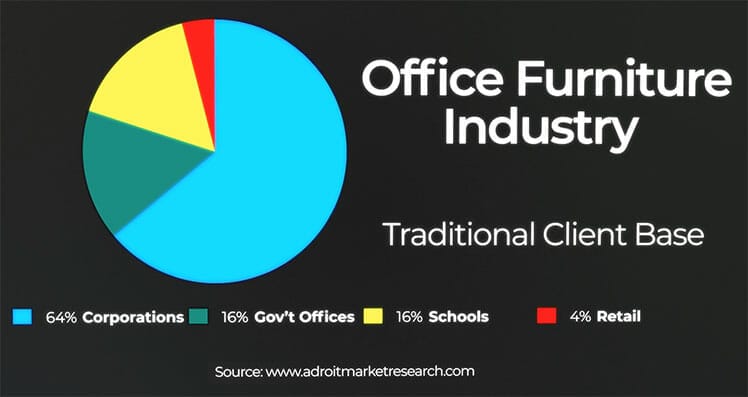
When lockdowns surged the demand for WFH furniture, most major players (Herman Miller, Steelcase, etc) were not equipped to handle consumer sales.

Well-developed gaming chair business-to-consumer (B2C) operations filled the gap, breaking sales records. That skyrocketed gaming chairs to the mainstream as viable ergonomic chairs for working from home.
Gaming Chair Pre-History: 1973-2006
Homo sapiens have existed for around 200,000 years. For around 90% of that time, they lived hunter-gatherer lifestyles. Sitting full-time didn’t become a thing until the late 1800s.

Roughly, the history of the desk chair is only 120 or so years long. The history of the ergonomic chair landed from outer space in 1973:
1973: NASA Discovers Neutral Postures
The story of the ergonomic office chair begins in 1973. Then, NASA scientists observed astronauts aboard the Skylab Space Station.
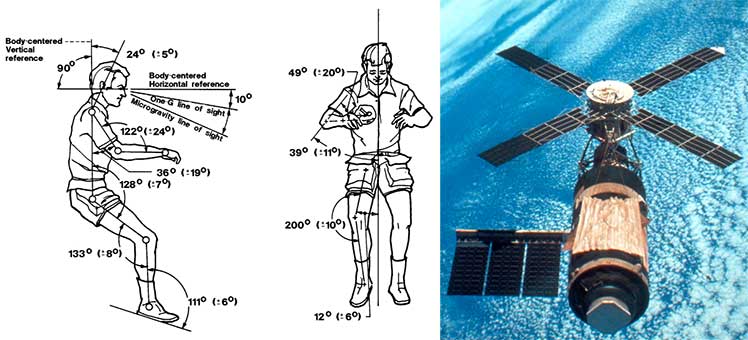
The astronauts always fell into neutral body postures while resting. Scientists learned that these positions best offload musculoskeletal stress, thereby reducing spinal pressure.
1991: Rise Of The Internet
In 1991, the World Wide Web first became publicly available. Adoption rose steadily in America, reaching around 75 million users by 1998.
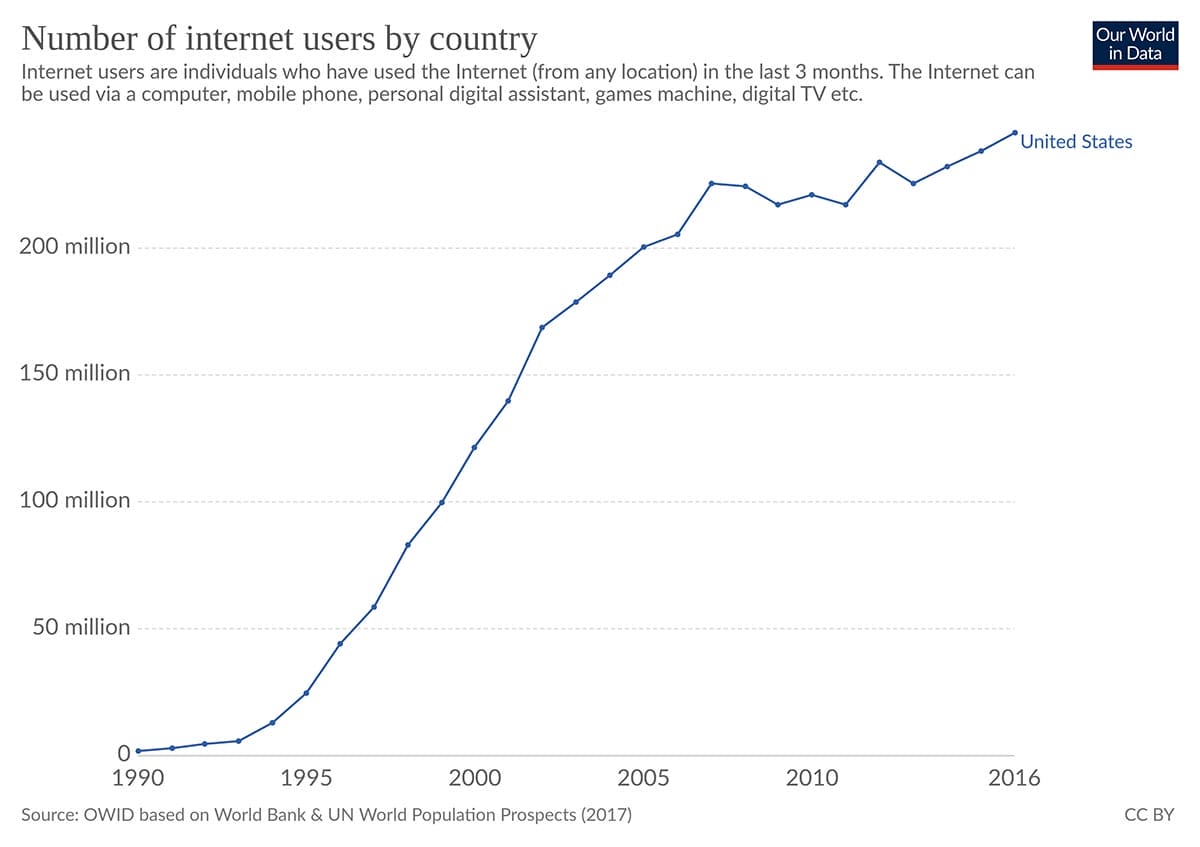
1998 also saw the release of Windows 1998 and the Starcraft video game. With so many computing attractions, sedentary habits began to rise, while activity levels fell.
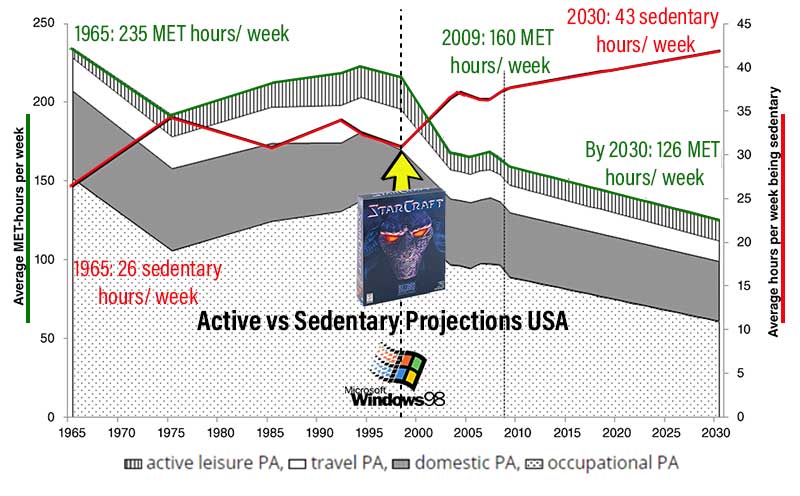
Within a similar timeframe, U.S. teen and childhood obesity levels also surged. As symptoms of excessive sitting mounted, it opened the door for new seating technologies to emerge.
1994: First Fully-Ergonomic Office Chair
NASA documented its neutral posture findings in the 1980s. This clarified the damage done by unhealthy sitting. In 1994, Herman Miller ported NASA’s tech into the Aeron, the world’s first mass-marketed ergonomic chair.

The Aeron included three adjustable features. In 2004, the 1st edition Handbook of Human Factors & Ergonomics would define these are the core features any chair needed to qualify as ‘ergonomic’:
- Lumbar supported recline: a 90-130° recline + a supported lumbar curve exerts the least spinal disc pressure.
- Adjustable arm support: armrests adjusted to the user offload strain from the neck and shoulders. That reduces disc pressure even more.
- Seated movement: frequent position changes keep muscles active while boosting circulation levels. That mitigates the ill effects of sedentary behavior.
This formula proved a hit. Soon after, a flood of competing ergonomic chairs hit the market.
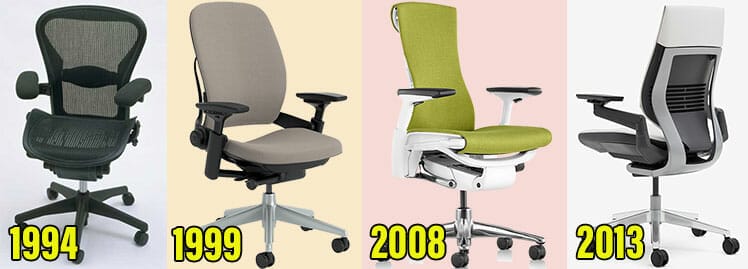
Thus began the story of the ergonomic office chair industry. Track its evolution:
1995-2000: Dotcom Bubble
The Aeron’s 1994 asking price of $1000 wasn’t outlandish in Silicon Valley circles. As internet adoption rose, venture capital flowed into Silicon Valley dotcom startups.
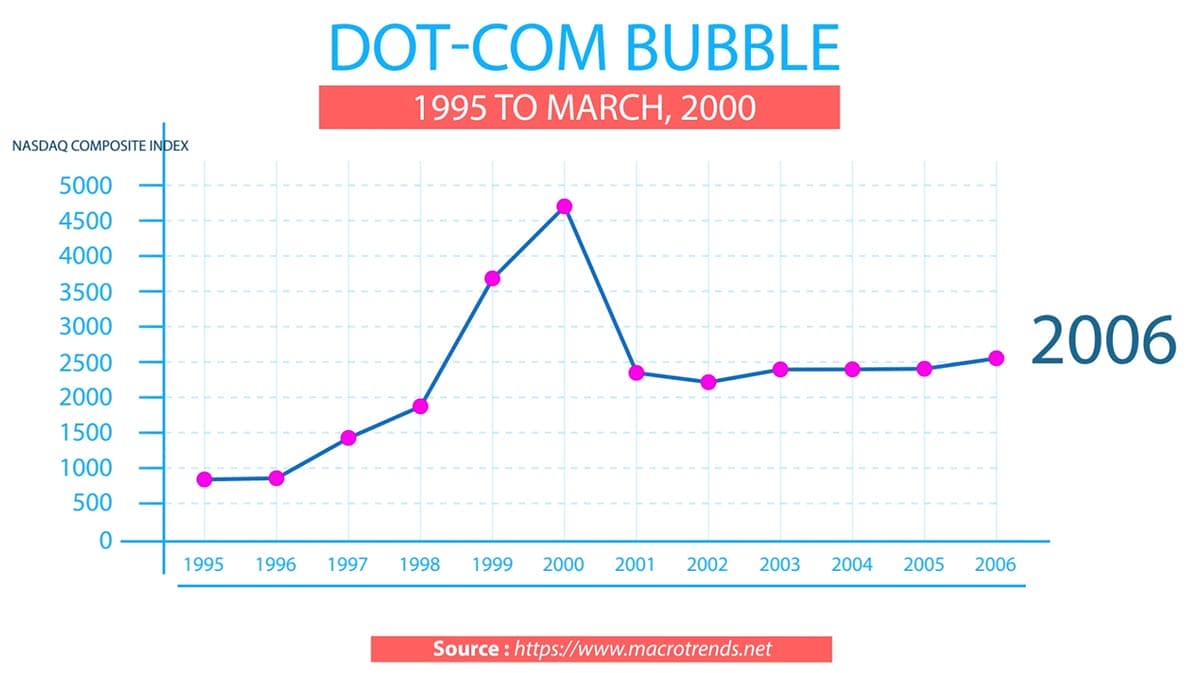
From 1995 until 2000, the NASDAQ composite stock market index rose 800%. Many promising dotcom companies raised cash through IPOs. Many employees received stock options and became instant (on-paper) millionaires.

In 1999, American consumers set a record for new car sales. That year saw 16.9 million new passenger cars, pickups, minivans and sport-utility vehicles sold(1). In 2001, DXRacer was one of many Chinese companies to descend into the red-hot market.
2001: DXRacer Sells Exotic Car Seats
In 2001, it wasn’t clear that the dotcom bubble had burst. DXRacer arrived from China and set up offices in Michigan (the U.S. car manufacturing hub) in 2001. The company’s plan was to sell exotic car seats to dotcom millionaires.
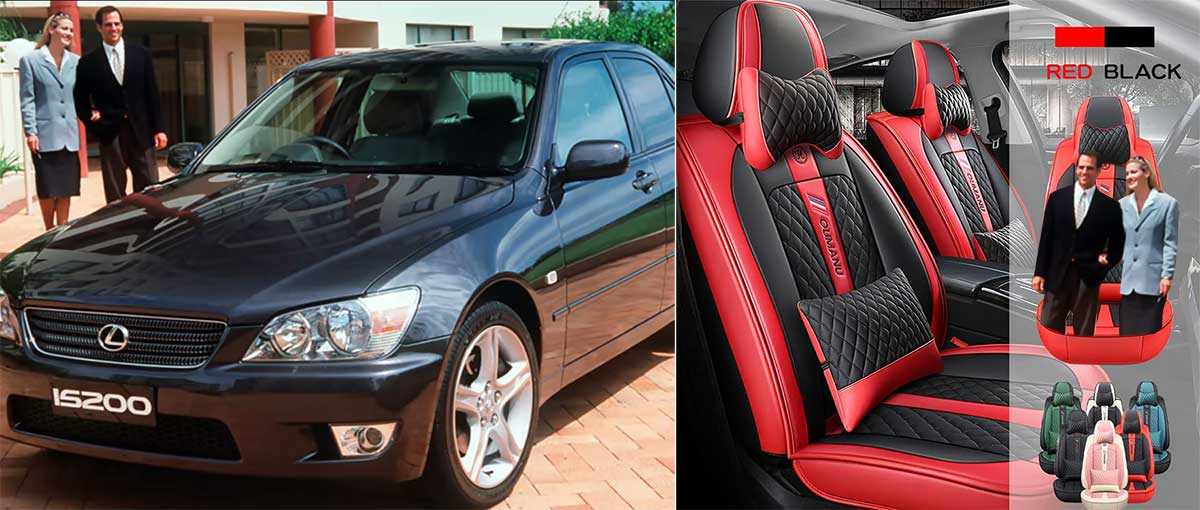
However, by 2002, it was clear that the dotcom bubble had burst. As the demand for exotic cars dried up, so did the demand for DXRacer’s exotic car seats.

Despite this setback, DXRacer continued its Michigan operations, waiting for the economy to rebound.
2004: Human Factors Handbook Ergonomics
The 1st edition Handbook of Human Factors and Ergonomics was published in 2004. It was the first major publication to port NASA’s neutral posture findings into ergonomic seating.

This provided designers (like the ones at DXRacer) with a clear blueprint. To qualify as ‘ergonomic’, a chair needs adjustable lumbar support, adjustable arms, and a reclining backrest.

Now in its 5th edition, the Handbook remains the defining text for design engineers, human-computer interaction specialists, safety professionals, and others.
2005: Cheap B2C Office Chairs Dominate
After the dotcom bubble burst, high-end furniture sales slowed. Yet, the office furniture industry still thrived by focusing on B2B sales.

The industry’s main clients were corporations, schools, and government offices. Most facility buyers in those sectors focus on price, style, and durability when buying chairs in bulk(2).
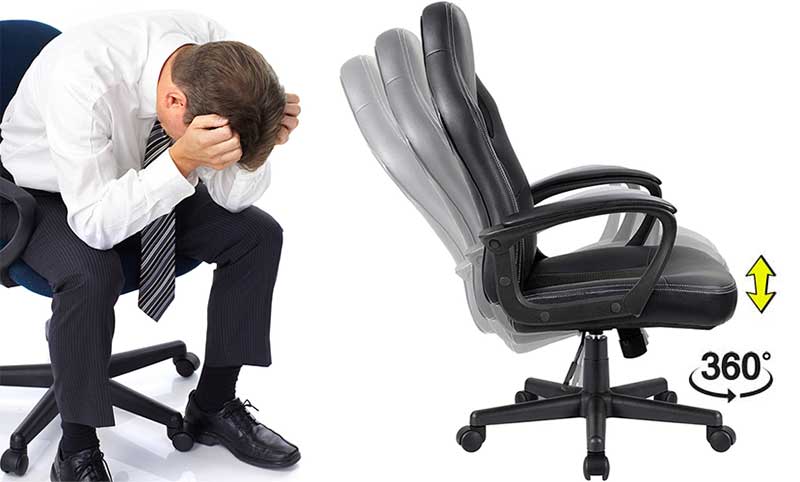
As a result, ergonomic chairs remained niche items for senior executives. To best serve the bottom line, most office workers still use basic office chairs.
This formula was lucrative, earning the office furniture industry billions in annual revenue. That led them to ignore the consumer seating needs from an emerging esports industry.
2005: U.S. Auto Industry Crash
A post 9-11 stock market crash crippled the U.S. economy. The Iraq War (2003-2011) resulted in higher gas prices. Then, sales of gas-guzzling American cars plummeted.

As the dotcom bubble further deflated the NASDAQ, America lost 5.7 million (33%) of its manufacturing jobs(3).

That left DXRacer stuck with warehouses of exotic car seats unlikely to be sold. By 2005, the company clearly needed a miracle to survive.
2005: Ergonomic Consumer Car Seats
With the U.S. auto market crumbled, Nissan Motor Company engineers got a chance to innovate. They used NASA’s neutral body posture (NBP) foundation to develop ergonomic car seats.
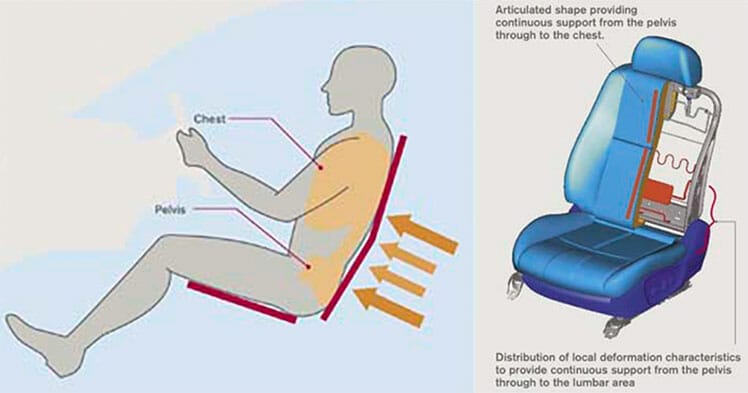
Like astronauts, car drivers need support to efficiently operate a vehicle for long periods. With good ergonomic support, they should suffer less fatigue.
To achieve that, Nissan developed a prototype to support a neutral spine. Based on NASA’s NBP studies, it aimed to reduce muscular loading on a driver’s back, pelvis, and torso.

In 2006, Nissan published the results of its study. It confirmed that its prototype seat supported the spine from the pelvis to the head and improved blood flow.
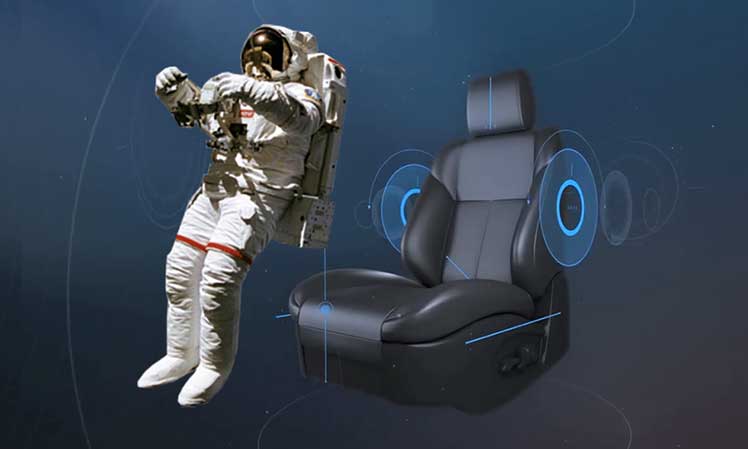
The driver was able to maintain a near-perfect NBP in the experimental seat. That significantly reduced fatigue over long periods of sitting(4).
History Of Gaming Chairs
Condensed history: DXRacer released the first gaming chair in 2006. Early product testing was done in China. In 2014, the company arrived in the U.S. as the official chair of TwitchCon. The same year, Secretlab and Maxnomic arose with higher-end pro esports gaming chairs. Soon after, elite streamers like Ninja, Tfue, and Pokimane all started using DXRacer chairs. When COVID lockdowns hit in 2020, the massive office furniture industry’s B2B model halted. That freed gaming chair companies (with well-developed B2C processes) to fill mainstream demand for ergonomic WFH chairs. Today, gaming chairs generate hundreds of millions in annual B2C sales.
Youtube Clip: The 2007-2014 Rise of DXRacer Gaming Chairs
2006: World’s First Gaming Chair
Unable to sell their exotic car seats, DXRacer engineers got creative. The same year Nissan published its ergonomic car seat study, DXRacer engineers slapped wheels onto car seats to make desk chairs.
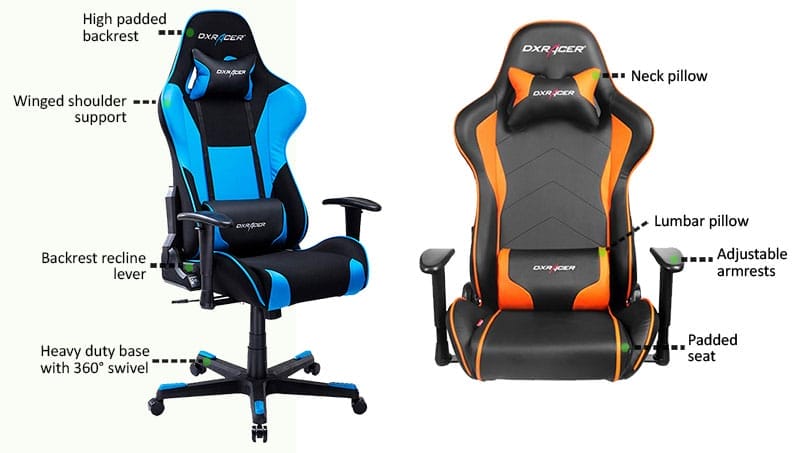
In 2006, DXRacer released the Formula Series, the world’s first gaming chair. It came with adjustable lumbar support, adjustable arms, and a reclining backrest. That qualified it (per the Human Factors Handbook) as ‘fully ergonomic’.
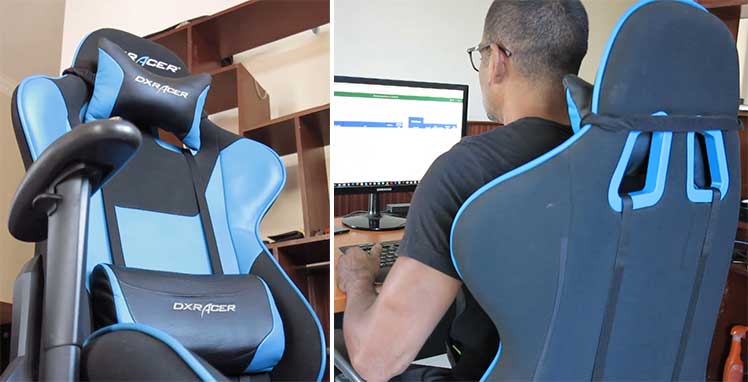
The F-Series provided full back support with deep recline functionality and adjustable armrests. It also came with adjustable neck and lumbar cushions to keep the spine aligned. Caster wheels attached to a 5-pointed base with adjustable height.
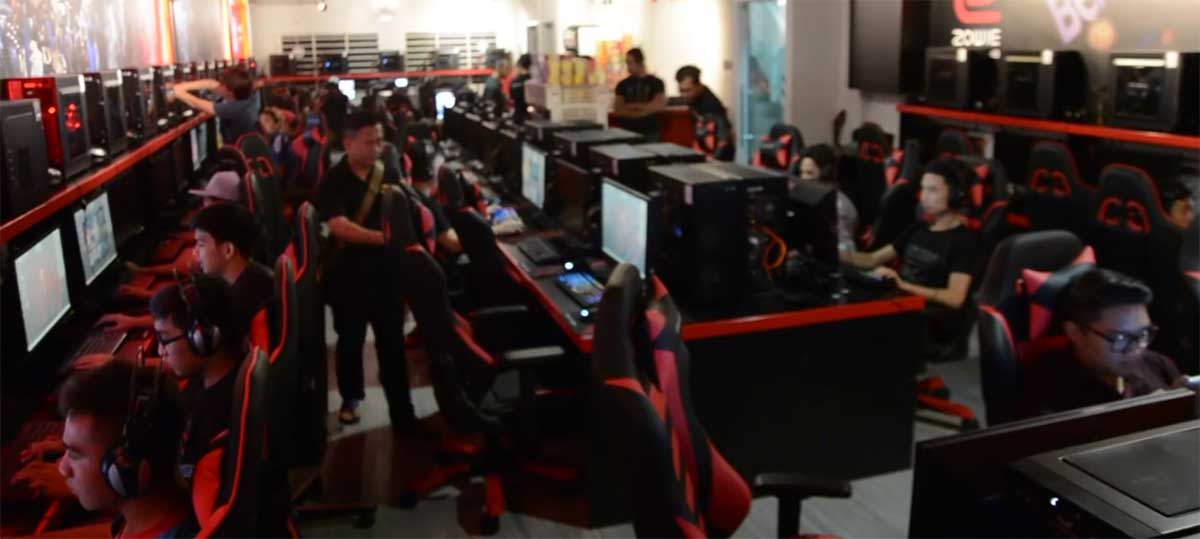
From its factories in China, DXRacer sent Formula Series chairs to local internet cafes. Then, word began to spread about a new type of affordable seating that let gamers sit comfortably for long periods.
Video Summary: The 2007 Rise of DXRacer in Asia
2008: AKRacing
Over the next two years since the DXRacer launch, the esports industry hummed along. Annual prize revenues jumped from $4.6 million in 2006 to $6.4 million in 2008. But the player ergonomics were still very basic.
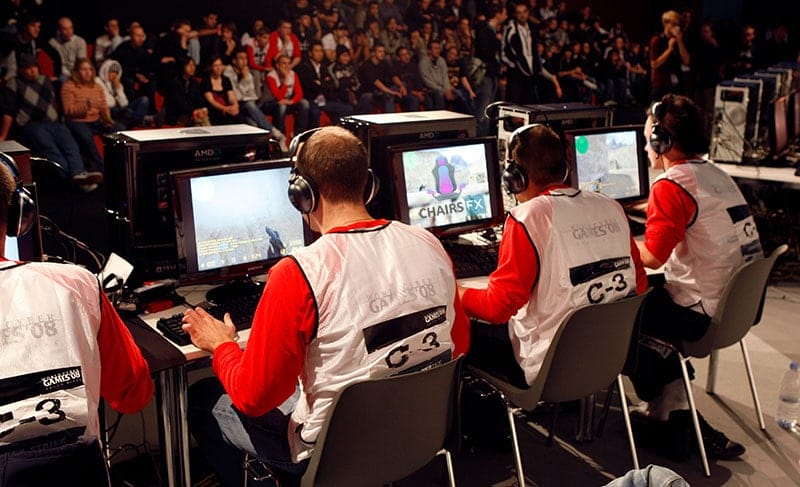
Also in 2008, AKRacing launched as the second big gaming chair company in the industry. Like DXRacer, this Taiwanese outfit made luxury car seats in a crumbling auto market.
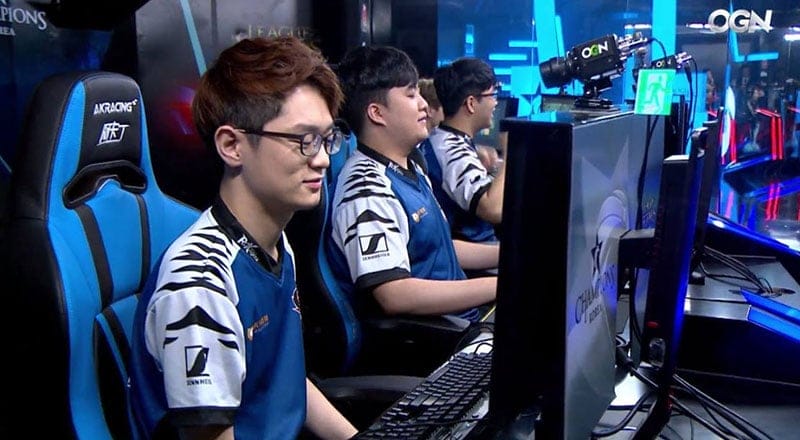
Seeing the success of DXRacer and the growth of the esports market, it was a no-brainer. They started making their own versions of DXRacer’s blueprint. They also jumped into esports promotion. Over the years, AKRacing has sponsored the World Cyber Games and partnered with major teams like Ninjas in Pyjamas and Team Dignitas.
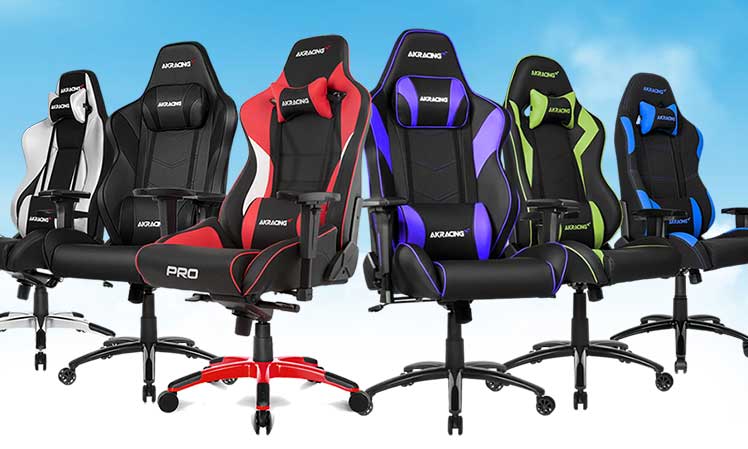
Circa 2022, AKRacing chairs continue to follow the original DXRacer blueprint. All models feature a tall padded backrest, adjustable arms, and adjustable support pillows.
2009: DXRacer Esports Partnerships
In response to AKRacing’s challenge, DXRacer decided to boost the profile of its chairs. First, they secured a partnership deal with the 2009 World Cyber Games (WCG):
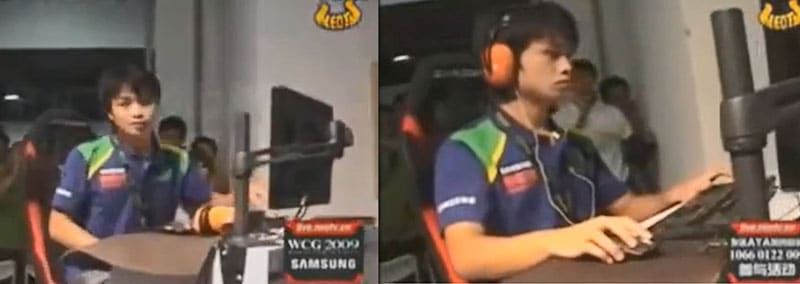
Then, the company followed up by providing official chairs for the 2012 and 2013 WCG as well. Like the 2009 WCG, both of those tournaments were held in China.
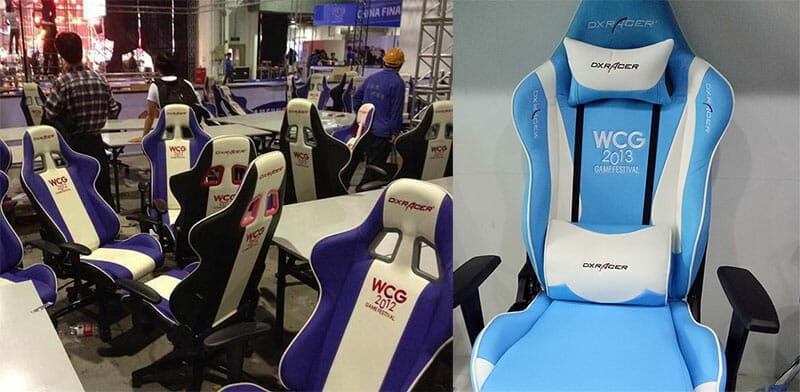
In 2014, DXRacer began marketing its chairs to American audiences. They did so with a splash, providing the official chairs for TwitchCon 2014 in Long Beach, California.
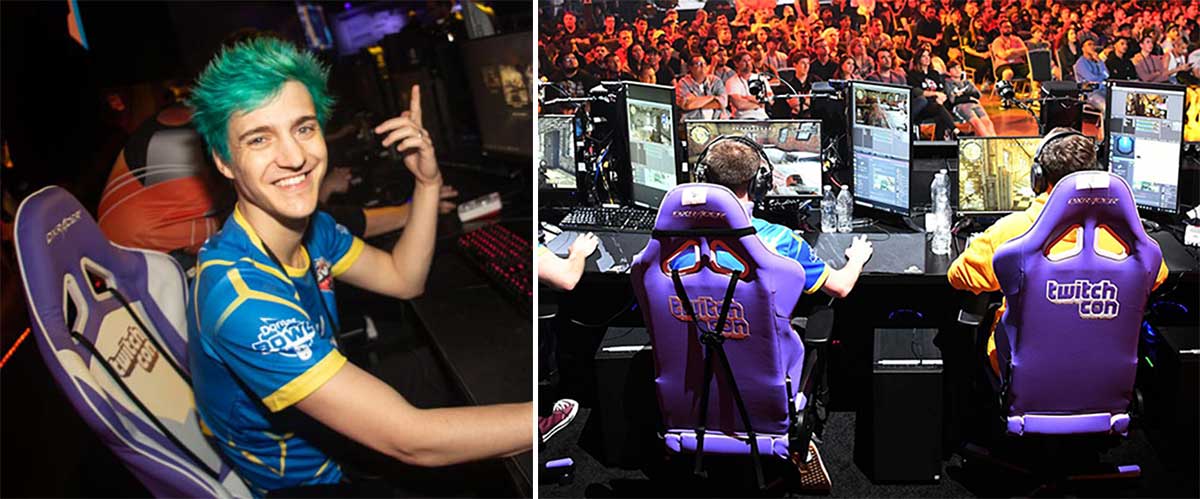
That brought awareness of gaming chairs to the world’s most influential streamers. For the next few years, popular streamers like Ninja, Tfue, Pokimane, and TimtheTatman all streamed while using DXRacer gaming chairs.
Best Full-Back Gaming Chairs 2024: Cutting Edge Ergo-Tech
Video Summary: The 2014 Rise of DXRacer in America
2012: Cheap Gaming Chairs
As DXRacer gaming chairs gained popularity, several cheap knockoffs started flooding Chinese websites. These looked like DXRacer gaming chairs, but inside, they used cheap plywood stuffed with surplus foam.
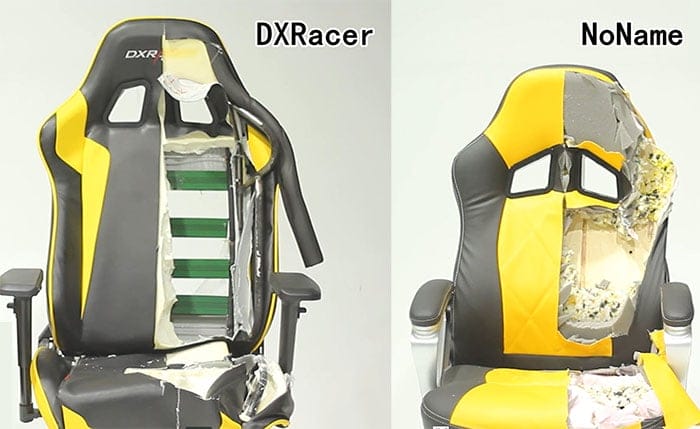
For most people, DXRacer’s concept was too new and too expensive (around $300 per chair). Those who tried cheap knockoffs were disappointed. As a result, gaming chairs remained a niche product only of interest to hard-core gamers.
That kept gaming chairs out of reach of the masses – until Homall showed up in 2012.
Homall Classic
In 2012, Chinese furniture company Homall launched a gaming chair division. Their mission was to reverse-engineer the best features of DXRacer chairs to sell cheaper products. Instead of cheap plywood, they used a cheap steel frame.
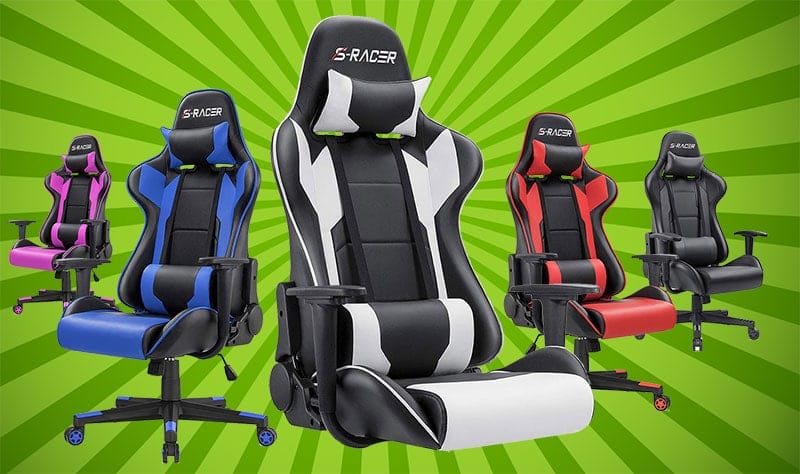
In place of cheap foam, they used high-density foam blocks. The result was a hit, bringing the concept of gaming chairs to the masses. Today, Homall’s Classic Series remains one of Amazon’s best-selling cheap gaming chairs.
2014: Secretlab & Maxnomic
In December 2014, a pair of Singaporean semi-pro Starcraft players founded Secretlab. Ian Ang and Alaric Choo came together to make ‘the best gaming chair on the market.’ For the next two years, they did all of their R&D in Singapore.
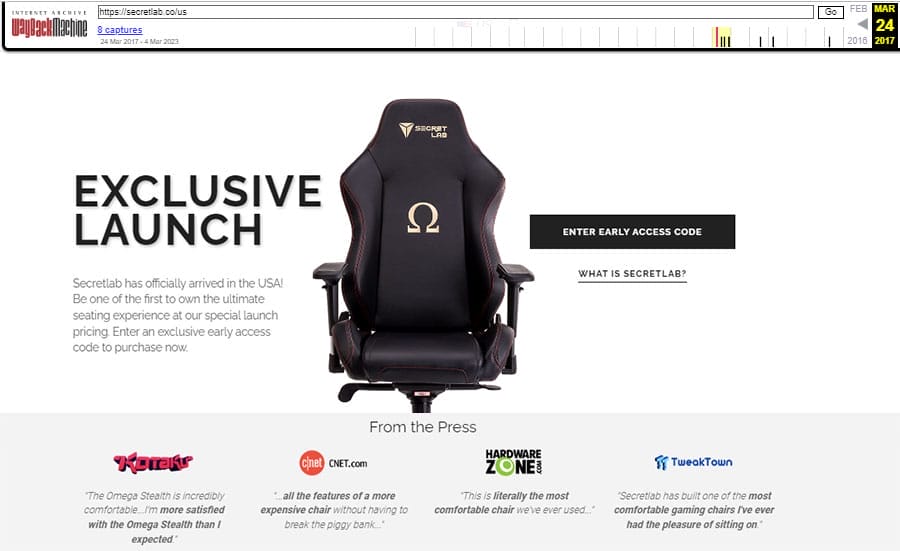
In early 2017, Secretlab chairs first became available in U.S. markets. Its flagship Titan gaming chair set itself apart from the DXRacer design with these groundbreaking features:
- Integrated lumbar support: internal lumbar like a pneumatic luxury car seat.
- Cold foam padding: a superior form of padding with greater resistance and durability.
- Larger sizes: wider, deeper seats to fit bigger and taller users.
After three years of steady growth, Secretlab broke through with record-breaking sales during 2020 COVID lockdowns.
2014: Maxnomic
Needforseat.com launched in 2013 to sell DXRacer chairs in European markets. In 2014, the company started making its own gaming chairs under the Maxnomic brand name.
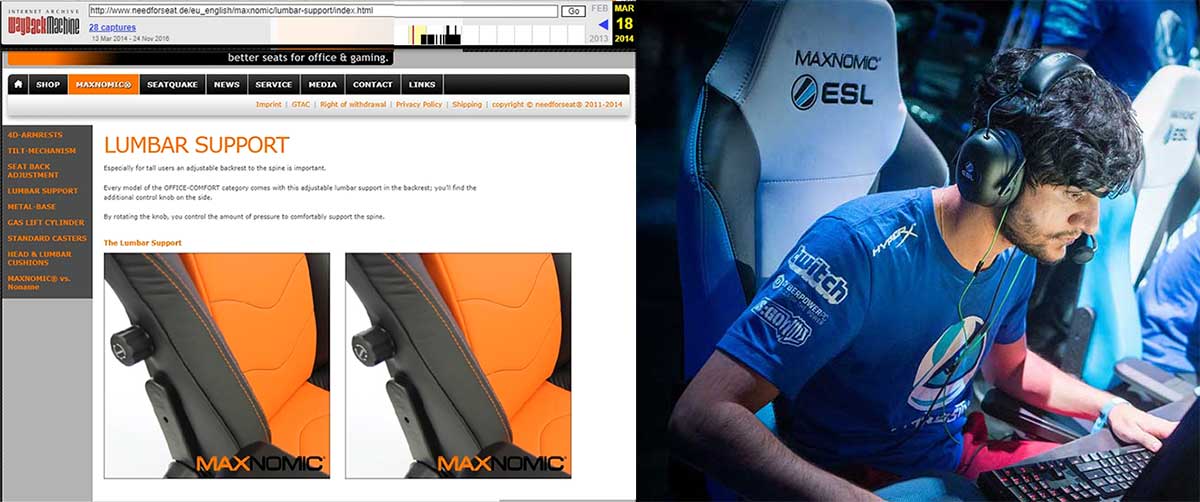
Like the Secretlab Titan, Maxnomic’s flagship chair had an integrated, depth-adjustable lumbar support system. Also like the Titan, Maxnomic’s chairs were first marketed to pro esports players.
2018: Secretlab Rises To The Top
Secretlab’s 2017 U.S. launch was a rousing success. That year, the company generated $15 million in chair sales. In 2019, the company generated $44.5 million in sales.

Also in 2019, Secretlab secured a round of venture capital from Heliconia Capital Management. Next, they released 2020 Series chair upgrades. These offered big improvements over previous models.
High-Profile Pro Esports Partnerships
Starting in 2018, Secretlab began amassing partnerships with elite pro esports teams. First came Team Secret, then Cloud9, Astralis, T1, and more.
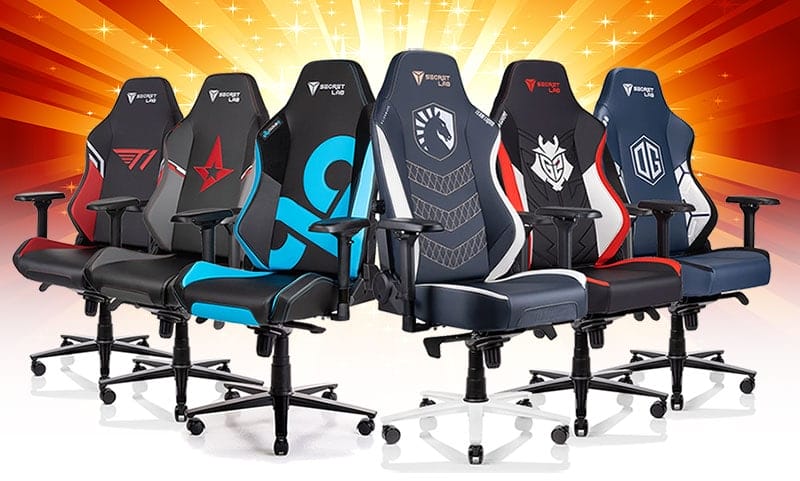
Beyond esports, Secretlab has also penetrated into mainstream entertainment markets. Via an HBO partnership, Secretlab offers three Game of Thrones gaming chairs. A Warner Bros. deal resulted in a Batman, Joker, and Harley Quinn chair.
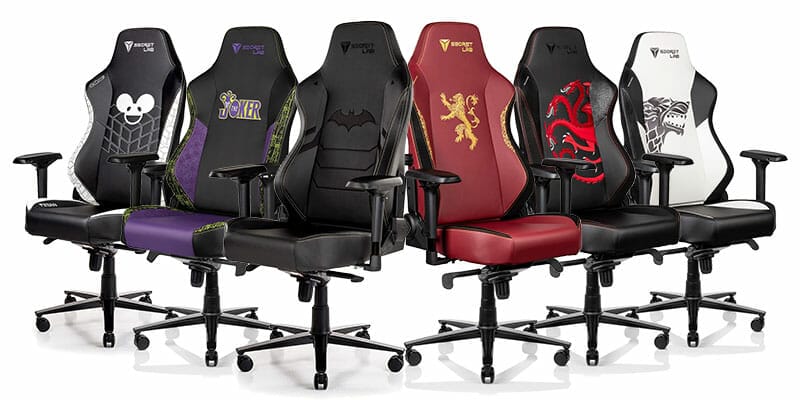
To date, no other gaming chair brand has achieved such a massive level of exposure.
2020 Lockdowns: Mainstream Breakthrough
Secretlab and a few other gaming chair brands broke sales records in FYE 2021. Chinese cheap chair maker Anji Wanbao reported that their sales doubled. Secretlab’s FYE 2021 earnings were more than double that of the previous year.
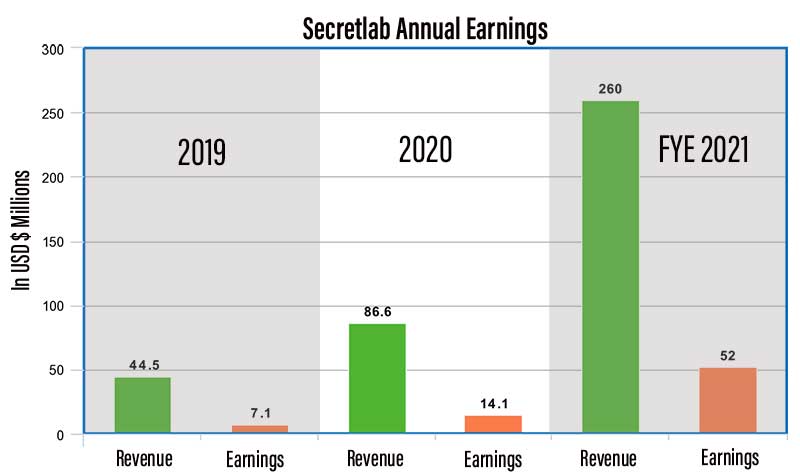
In contrast, lockdowns decimated office furniture sales. For one thing, that killed demand from the office furniture industry’s B2B clients (schools, corporations, and government offices).
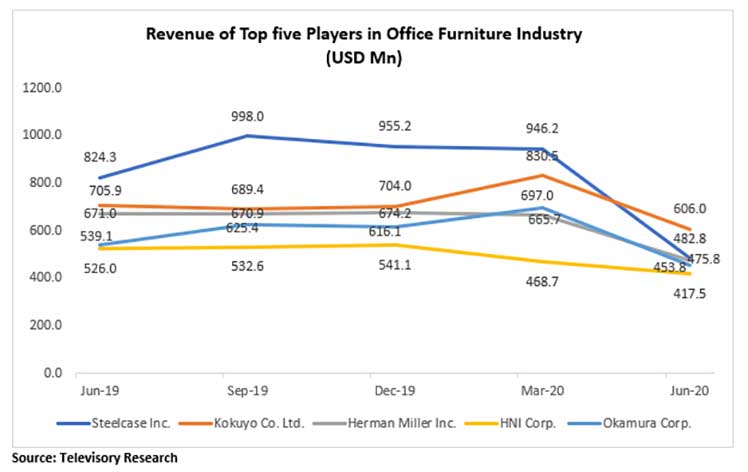
For another, most big office chair brands (Herman Miller, Steelcase, etc) were only equipped for B2B sales to corporate clients. In sharp contrast, most top gaming chair brands had well-developed business-to-consumer (B2C) platforms in place.

As a result, when the demand for office furniture surged during lockdowns, big office furniture players were left on the sidelines. That freed several brands (including Secretlab) to break through to reach mainstream appeal.
Learn more: 2020 Lockdown Trends: Gaming Chair Vs Office Furniture Industries
2023: Hundreds Of Million In Annual Sales
Secretlab is the clear gaming chair industry leader in 2023. For one thing, it has more top-50 gaming chair partners than any other chair brand.
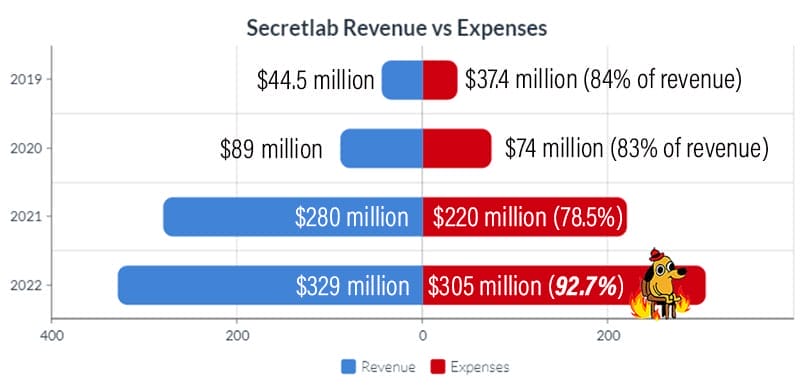
For another, the company has been breaking its own sales records each year since 2019. (Secretlab is the only privately-owned gaming chair brand that shares its annual sales figures).
- 2019: $44.5 million in sales
- 2020: $89 million in sales
- 2021 (peak lockdown era): $280 million in sales
- 2022 (post-lockdown): $329 million in sales
Despite steady year-over-year growth, post-lockdown shipping and materials expenses have been extreme. As a result, despite earning $329 million in FYE 2022, the company expects to post a net loss for the first time ever.
Key takeaway: factoring in sales from all other brands, it’s likely the entire industry generates close to a billion dollars in annual sales. However, because of high production costs, profit margins are likely very slim.
History of Gaming Chairs In Esports
Condensed history: the rise of televised esports began in South Korea in the late 1990s. Most players sat on cheap, non-ergonomic desk chairs. DXRacer started sponsoring esports tournaments in 2009. In 2011, the Twitch streaming platform launched. In 2014, DXRacer provided the official chairs for Twitchcon 2014. Soon after, many of the world’s most famous streamers started using DXRacer gaming chairs.
1980: First Major Esports Tournament
The pro esports story begins in 1980. That year, Atari released Space Invaders for the Atari 2600. To promote the game, the company held a national championship. Over 10,000 people turned up to the New York finals, making it the first large-scale esports tournament(5).
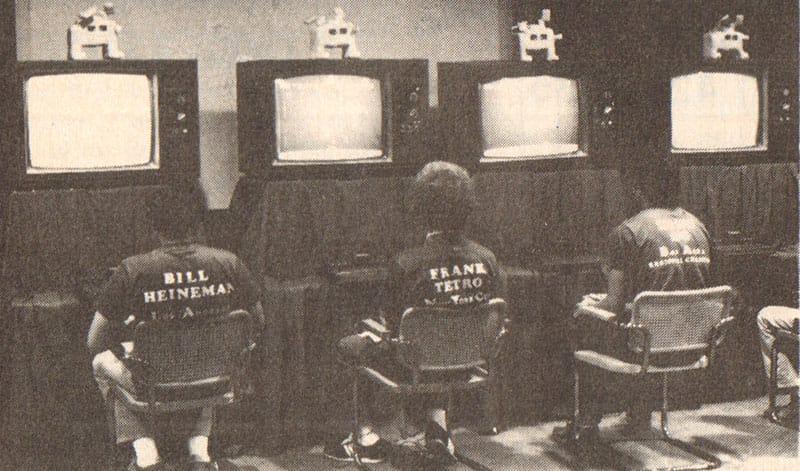
The gaming ergonomics of the time were horrendous. Players sat on steel chairs while craning their necks to see TVs positioned too high. This type of gamer seating was the norm until the early 2000s in South Korea.
1997: South Korean Economic Collapse
The birth of pro esports was the result of a South Korean economic crash. From the 1960s and 1990s, four “Tiger economies” arose in Asia. Hong Kong and Singapore became international financial centers. South Korea and Taiwan developed into high-tech electronics hubs.
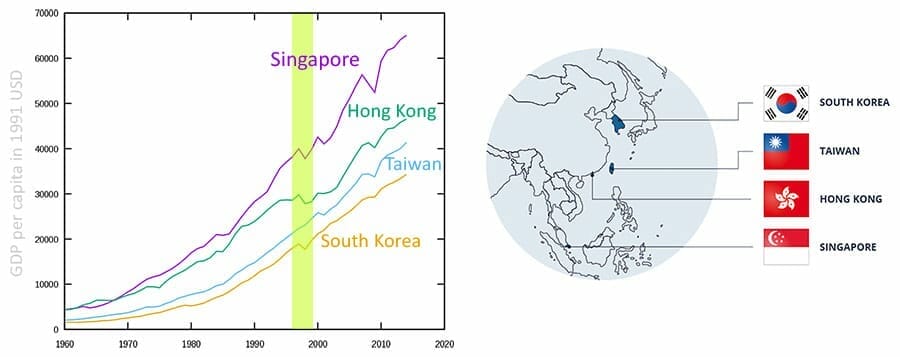
In Korea, power corrupted. Prosperity led to cronyism and corruption between chaebols (Korean mega-corporations like Samsung) and the government(7).
Chaebols wasted huge sums on wasteful projects like luxury hobby cars and feature-length films. They also maintained bloated rosters of overpaid, unionized employees.

In late 1997, several chaebols were unable to pay off their loans. Staff cuts began, and protests broke out. Then, the stock market crashed, halving the value of the Korean currency(8).
The South Korean government got an emergency $58 billion loan from the IMF, but it wasn’t enough. Japan, America, and others also lent cash to save the Korean economy from collapsing.
1998: Starcraft in South Korea
A year after the financial crash, Blizzard Entertainment released Starcraft, a complex strategy game. Gameplay involves tactical thinking and crisp resource management.
Success demands a high level of manual dexterity. The best Starcraft players can execute hundreds of discrete actions per minute.

This proved a perfect fit for hordes of overeducated, underemployed Korean youth. Before the economic crash, Seoul had hundreds of stock trading cafes. After the crash, many trading cafes converted into “PC bangs” (gaming rooms).(9) Across hundreds of back-alley Seoul cafes, the modern concept of competitive esports was born.

Starcraft exploded in popularity. Big business interests got involved. In 2002, Samsung and SK Telecom started putting money into pro esports teams. Korean TV channels Ongamenet and MBCGame started running Starcraft tournaments(10).
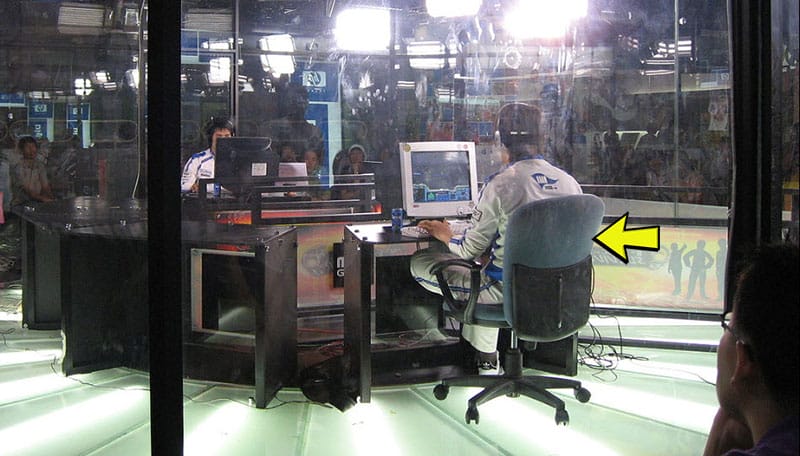
Players competed for cash prizes, with games broadcast live on each channel. Record audiences tuned in as their idols played their favorite games for high stakes. Despite all the buzz, player ergonomics remained an afterthought.
Early Esports Ergonomics
As the South Korean Starcraft frenzy took esports to new highs, ergonomics were brutal. Pictured below is the setup for the 2005 Cyber Games, with white plastic chairs for the players.
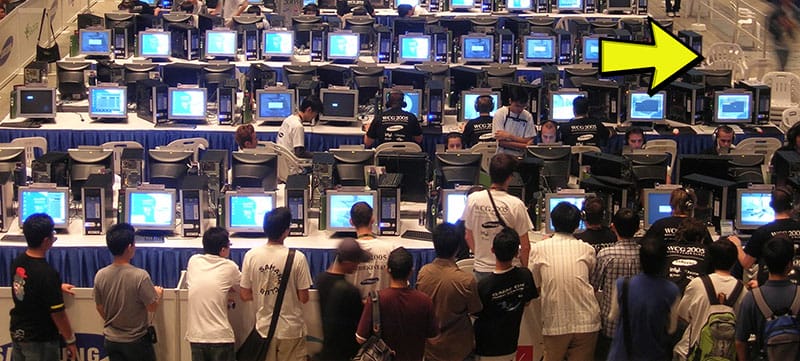
In 2003, Call of Duty arrived and quickly became an esports classic. A year later, COD esports tournaments offered $2.8 million in cash prizes(11). In 2005, COD tourneys offered $4.3 million in prizes. But despite growing prize pools, player ergonomics remained crude.
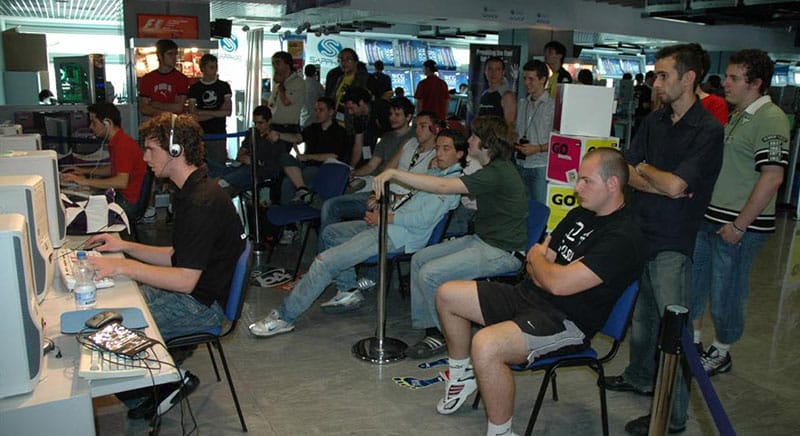
In 2005, a study of UK internet users found that the average time spent online had increased to around 10 hours(12). As seated computing time went up, so did back pain cases.
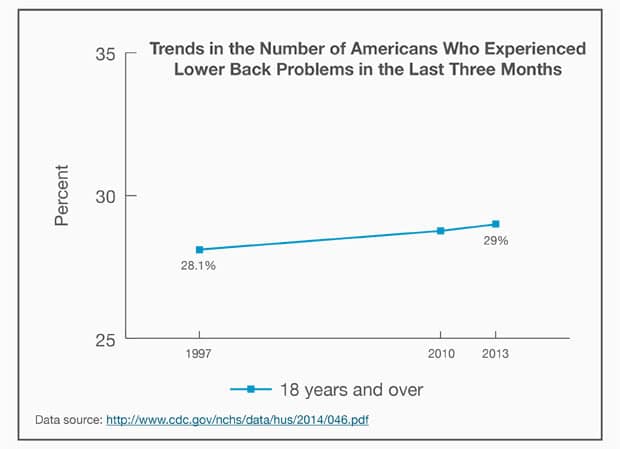
That’s because as esports grew in popularity, gamers spent longer periods sitting at computers. With the crude seating of the era, back pain was inevitable.
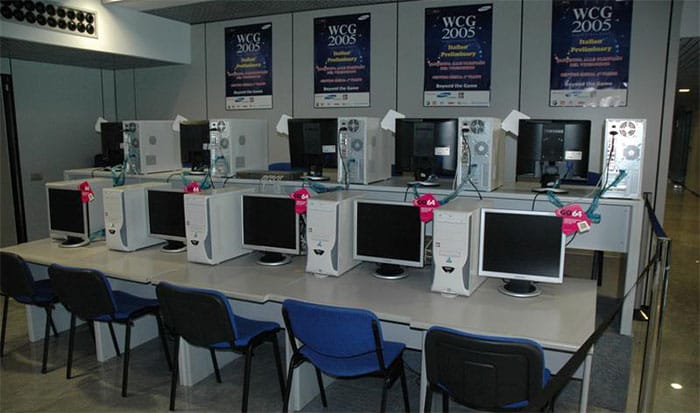
Despite the growing need for healthier seating, it wasn’t until 2006 that someone stepped up to fill it.
2011: Twitch Streaming
This year was a major turning point for the esports industry. Before the arrival of streaming services, esports were only broadcast on TV. Market penetration hit another level when the streaming service Twitch launched in 2011.
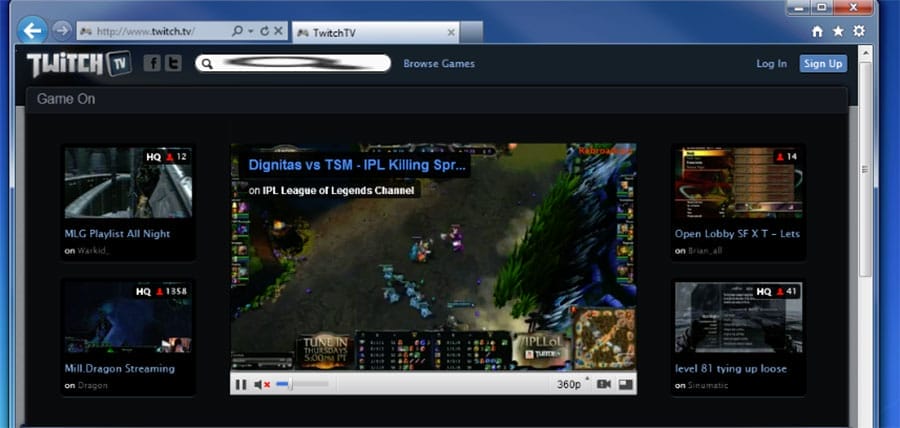
Twitch began broadcasting tournaments online. That gave casual gamers easy access to a new spectator sport based on their favorite video games. Over the next few years, games like League of Legends, Overwatch, and Dota 2 exploded in popularity. Millions began tuning in.
Twitch Sitting Disease
A year after it launched, Twitch averaged 6 billion minutes of content(13) watched every month. Aspiring pros would spend full-time hours sitting to build an audience. Any time they left their computers, they’d risk losing viewers to another channel.
Former streamer Joe Marino nearly died pursuing a streaming career(14). His advice: “Find that balance. Get up, move around — do something other than sit. Standing desks help but it won’t fix it. You have to move.”
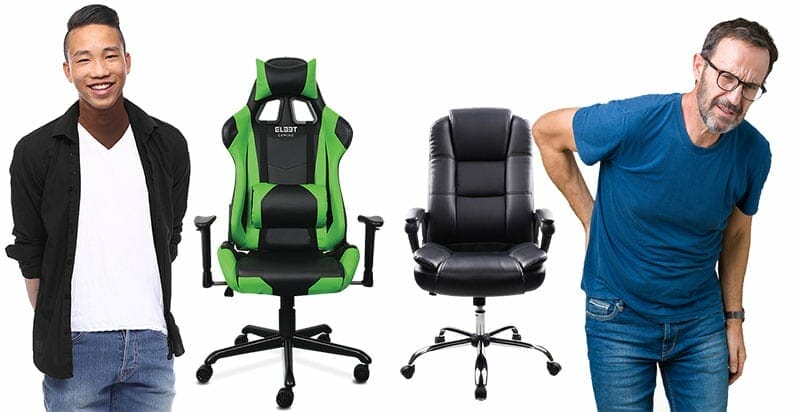
In 2012, a 23-year old Taiwanese gamer ignored that advice. Chen Jung-yu paid for 23 hours at a Taipei Internet cafe. At the end of his 23 hours, the clerk noticed him sitting rigidly with a blackened face — stone-cold dead(15).
With sedentary behavior on the rise, DXRacer proved to have excellent foresight. For two big reasons, their models proved the perfect solution for the era. First, gaming chairs promote good posture. Second, good posture yields physical and mental benefits that help gamers perform at a higher level.
2014: DXRacer Aligns With Esports Pros
After a well-received run testing its gaming chairs in China, DXRacer prepared to breach the U.S. market. The company became the official chair of TwitchCon 2014 in Long Beach, California.
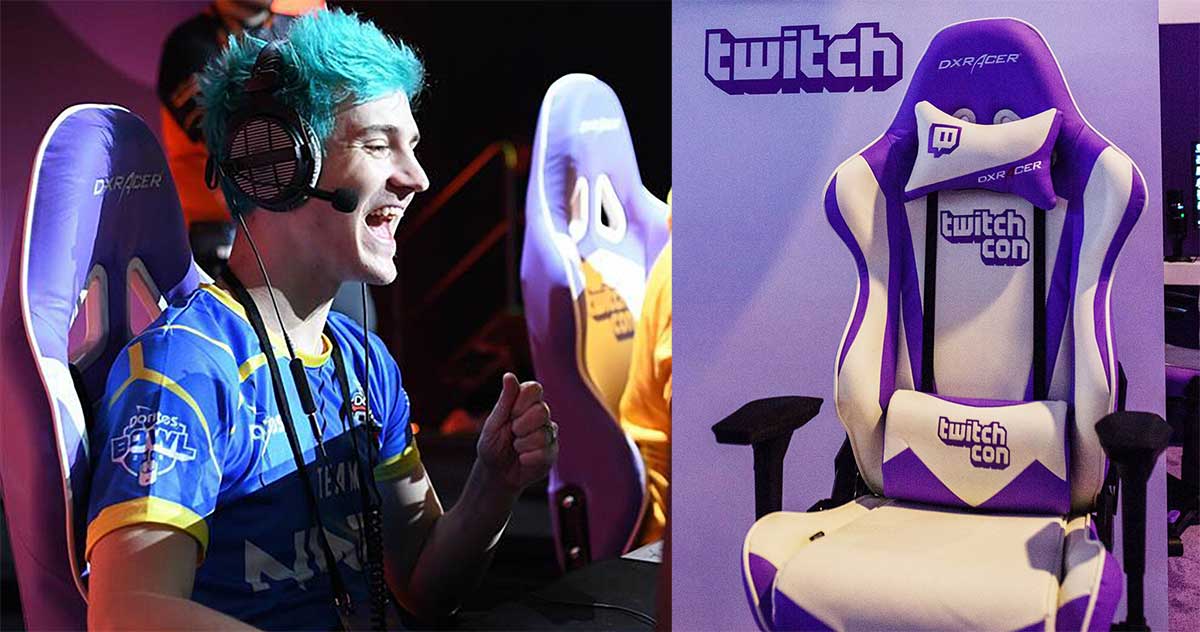
DXRacer chairs offered a solution to the dreaded Twitch sitting disease. What’s more, unlike pricey Herman Miller chairs, DXRacer models cost under $400.

Soon after its debut at TwitchCon 2014, many of the world’s top streamers started using DXRacer gaming chairs. THis brought gaming chairs to the attention of video gamers worldwide.
Conclusion
In March 1998, Blizzard Entertainment released StarCraft, a science fiction video game. Success required strategic thinking and clever execution. This provided the perfect means for jobless, over-educated Korean youth to spend their time.
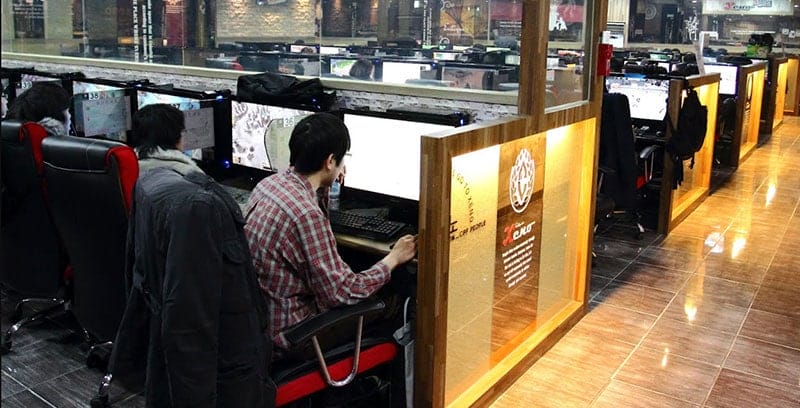
As a result, many flocked to the game. Big business began to take notice. At the same time in America, the auto industry was imploding.

Three seemingly unrelated factors brought the gaming chair into being. First, Starcraft-crazed Korean marathon gamers. Second, an auto industry crash in America. Third, a DXRacer warehouse full of unsold luxury car seats.
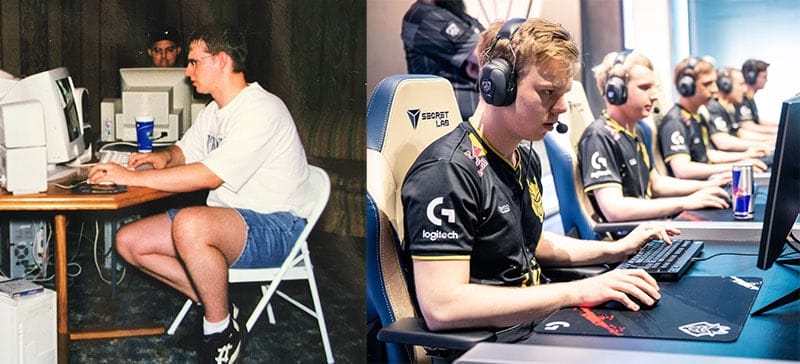
The gaming chair origin story resembles a classic story plotline. It begins with the introduction of a problem (poor seating). The climax comes during the 2020 lockdown, when gaming chairs reached mainstream acceptance as viable ergonomic seating.
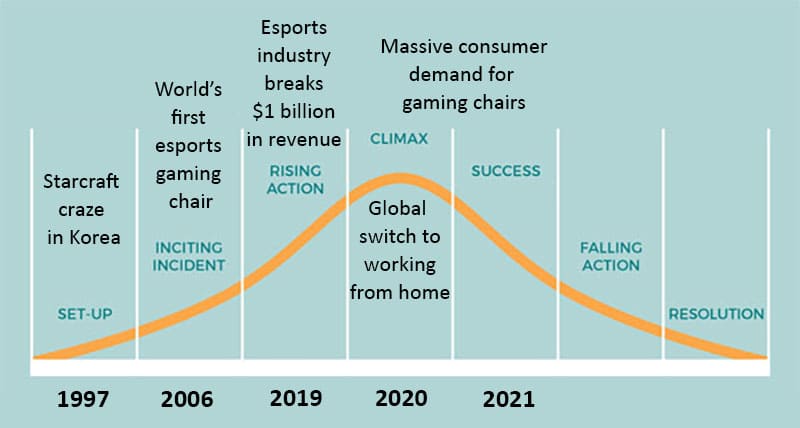
In 2024, gaming chairs remain a viable alternative to high-end ergonomic office chairs. While both are fully-ergonomic (adjustable lumbar + arms + recline), gaming chairs offer more versatility.
I recently did extensive testing using the best gaming and ergonomic office chairs. Pitting the Secretlab Titan Evo (gaming chair) against the Herman Miller Aeron (office chair) yielded two interesting conclusions.
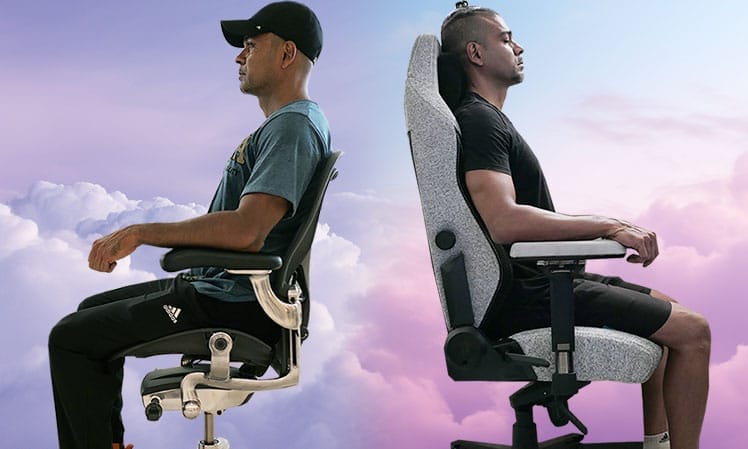
First, both support biomechanically perfect neutral postures for long periods. Second, the biggest differences between these chairs impact the psyche more than the spine. Learn more:
Gaming Vs Office Chairs: Titan Evo Vs Aeron
Footnotes
- Justin Hyde. ‘U.S. Consumers Buy Record 16.9 Million Autos in 1999’. January 6, 2000. https://www.latimes.com/archives/la-xpm-2000-jan-06-fi-51220-story.html, (accessed 26 December 2023).
- ‘Guidelines (Principles) in selecting office furniture’. January 4, 2016. https://accountlearning.com/guidelines-principles-in-selecting-office-furniture/, (accessed 8 April 2022).
- Heather Long. ‘U.S. has lost 5 million manufacturing jobs since 2000’. March 29, 2016. https://money.cnn.com/2016/03/29/news/economy/us-manufacturing-jobs/, (accessed 8 April 2022).
- ‘Zero Gravity Inspired Car Seat’, Nissan Motor Corporation, April 18, 2014. https://www.nissan-global.com/EN/TECHNOLOGY/OVERVIEW/zero_gravity_inspired_car_seat.html (accessed 12 March. 2022).
- darth-azrael. ‘Space Invaders Championship (1980)’, Retro Gaming, 2017. https://steemit.com/retrogaming/@darth-azrael/space-invaders-championship-1980, (accessed 8 April 2022).
- Scott Stilphen. ‘Rebecca Heineman interview’, Atari Compendium, 2006. http://www.ataricompendium.com/archives/interviews/rebecca_heineman/interview_rebecca_heineman.html, (accessed 8 April 2022).
- ‘Economic Crisis of 1997 in South Korea’, https://factsanddetails.com/asian/cat62/sub408/item2558.html, (accessed 8 April 2022).
- M. Mustafa Erdogdu. ‘The South Korean Crisis of 1997 and its Aftermath’, Conference: VI. ERC/METU International Conference in Economics, 2002. https://www.researchgate.net/publication/261063307_The_South_Korean_Crisis_of_1997, (accessed 8 April 2022).
- Jay Hoffmann. ‘What Is a PC Bang?’ The History of the Web, June 11 2018. https://thehistoryoftheweb.com/postscript/what-is-a-pc-bang/, (accessed 8 April 2022).
- Wikipedia. ‘StarCraft in esports’ updated March 28, 2022. https://en.wikipedia.org/wiki/StarCraft_in_esports, (accessed 8 April 2022).
- EsportsEarnings. ‘StarCraft in esports’ updated March 28, 2022. https://www.esportsearnings.com/history/2004/games/356-call-of-duty, (accessed 8 April 2022).
- ‘Time spent online doubles in a decade’. Media Releases, 11 May, 2016. https://www.ofcom.org.uk/about-ofcom/latest/media/media-releases/2015/time-spent-online-doubles-in-a-decade, (accessed 8 April 2022).
- ‘Twitch Statistics And Charts’. https://twitchtracker.com/statistics, (accessed 8 April 2022).
- Joe Marino. ‘Dying To Stream’ Geekdomo, February 23 2017. https://medium.com/the-cube/dying-to-stream-ff0ed2e3dfbb#.21xnbbpvj, (accessed 8 April 2022).
- Cheng Shu-ting. ‘Gamers ignore corpse in Internet cafe’ February 4 2012. http://www.taipeitimes.com/News/front/archives/2012/02/04/2003524636, (accessed 8 April 2022).



